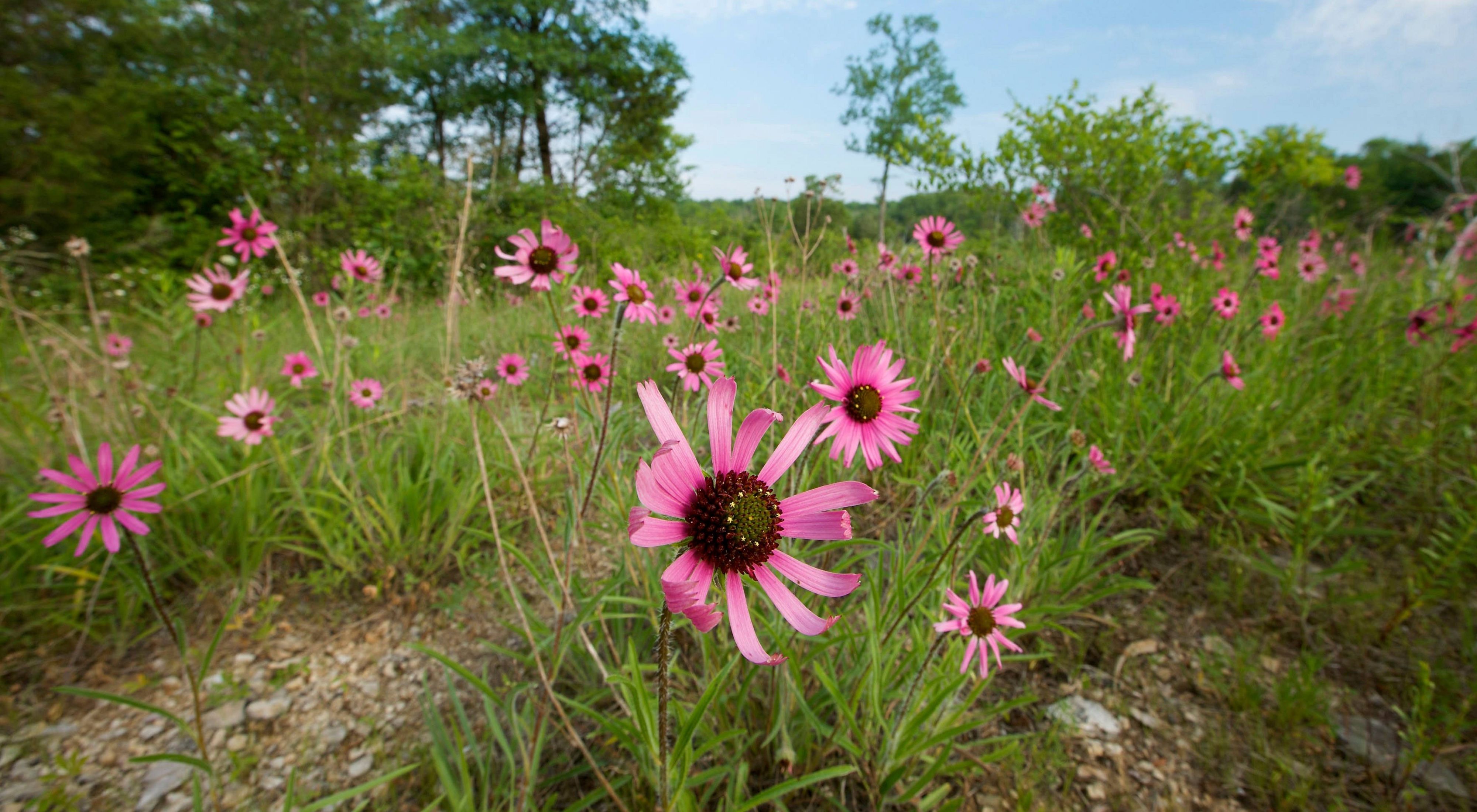Tennessee Coneflower—No Longer Endangered
The Nature Conservancy played a key role in this iconic flower's comeback.
In 1968, Vanderbilt biology professor Elsie Quarterman and graduate student Barbara Turner accidentally discovered fuschia-colored Tennessee coneflowers (a member of the genus Echinacea) at Mount View Cedar Glade. Limestone cedar glades are areas where rock formations prevent common deciduous trees from growing and the landscape more closely resembles a rocky grassland. They are key to the survival of Tennessee coneflowers, which had been thought to be extinct for many years prior to the rediscovery.
In time, three other coneflower sites were discovered in Davidson and Wilson counties. By 1979, the Tennessee coneflower became the first plant endemic to Tennessee to be protected by the Endangered Species Act.
Quarterman subsequently joined The Nature Conservancy's Tennessee Board of Trustees, where she urged involvement in protecting cedar glade habitats where the Tennessee coneflower and other rare plants have adapted to live in harsh, stony conditions. In 1984, TNC purchased 950 acres of cedar glades in Davidson and Wilson counties in Middle Tennessee. The property included three key sites for the Tennessee coneflower: Couchville Cedar Glade, Vesta Cedar Glade and Mount View Cedar Glade.
Eventually, TNC transferred the property to the Tennessee Department of Environment and Conservation (TDEC) to own and manage. Today all of the properties remain protected as State Natural Areas.
Quote: Sally Palmer
It is amazing that she helped get the Tennessee coneflower listed, invested deeply in its recovery and lived long enough to see it de-listed in 2011.
On August 4, 2011, the U.S. Fish and Wildlife Service announced the removal of the Tennessee coneflower from the Endangered Species List. The day marked an extraordinary conservation win achieved by partners focused on recovering a rare plant from the brink of extinction.

